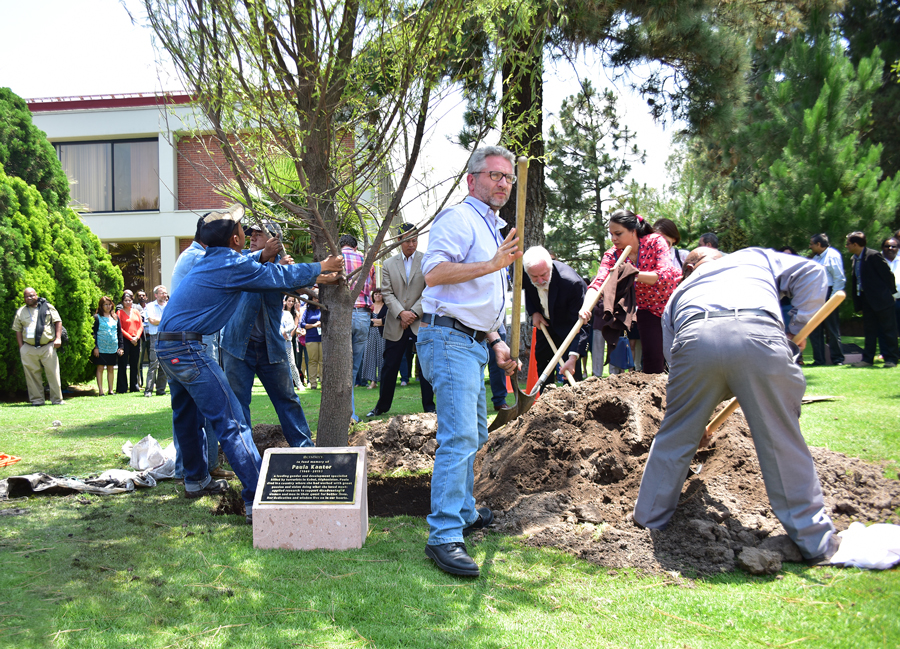Pakistan
For more information, contact CIMMYT’s Pakistan office.
Pakistani stakeholders evaluate the performance of CIMMYT maize germplasm across Punjab
 Capacity development
Capacity development
Pakistan Agricultural Research Council (PARC), organized a traveling seminar to give stakeholders the chance to evaluate the performance of CIMMYT maize germplasm in Punjab Province, Pakistan.
Fostering public-private partnerships for decentralized wheat seed production in Pakistan
 Capacity development
Capacity development
To strengthen functional linkages between private seed companies and public sector institutions in Pakistan, CIMMYT and its national partners jointly organized four training sessions, one each in Punjab and Sindh and two in Khyber Pakhtunkhaw during March and April, 2015. Participants included 45 staff members from 10 private seed companies from those provinces.
AIP-CIMMYT holds national meeting on conservation agriculture in Pakistan
 Innovations
Innovations
“Cereal system productivity cannot be improved without improving agronomic practices,” declared Shahid Masood, Member of the Pakistan Agricultural Research Council (PARC) at a two-day AIP-Agronomy national meeting on conservation agriculture held in Islamabad, Pakistan, on 26-27 May 2015. He lauded CIMMYT’s efforts to strengthen conservation agriculture (CA) research and disseminate CA to Pakistan’s farming community and mentioned the importance of public and private partnerships for promoting CA technologies. The meeting was jointly organized by CIMMYT and PARC under USAID’s Agricultural Innovation Program (AIP) for Pakistan.
First wheat improvement training course for young scientists held in Pakistan
 Capacity development
Capacity development
The Wheat Productivity Enhancement Program (WPEP) in Pakistan, led by CIMMYT and funded by the United States Department of Agriculture (USDA), is working to enhance and protect wheat productivity in Pakistan by supporting research leading to the identification, adoption and optimal agronomic management of new, high yielding, disease resistant wheat varieties.
In fond memory of Paula Kantor (1969-2015)
 Gender equality, youth and social inclusion
Gender equality, youth and social inclusion
Paula had an exceptionally sharp, analytical mind and a deep understanding of how change can empower men and women to give them a better chance to influence their own lives and choose their own path.
For development expert Paula Kantor, gender equality was crucial
 Gender equality, youth and social inclusion
Gender equality, youth and social inclusion
Gender and development specialist Paula Kantor had a deep understanding of how change can empower men and women to give them greater control over their own lives.
WPEP strengthens farmer knowledge of wheat seed production in Pakistan
 Capacity development
Capacity development
The Wheat Productivity Enhancement Program (WPEP), led by CIMMYT and funded by the United States Department of Agriculture (USDA), held technical training sessions on wheat seed production from March to May 2015 for farmer enterprise groups (FEGs) in Pakistan’s Khyber Pakhtunkhwa (KP) Province. The training was held in collaboration with the Outreach Programme of the Agriculture Research System in KP Province, which formed the FEGs, each comprising 30-35 persons including farmers, seed dealers and seed company representatives.
Durum wheat production in Pakistan: keeping up with changing demands
 Nutrition, health and food security
Nutrition, health and food security
In response to rapidly-changing food preferences in Pakistan, including a latent unmet demand for pasta products, CIMMYT-Pakistan has been working to develop the country’s durum wheat market and varieties that satisfy the required grain quality attributes, in addition to high yields and disease resistance.
SUPER WOMAN: Jeanie Borlaug Laube unites global wheat community
 Gender equality, youth and social inclusion
Gender equality, youth and social inclusion
